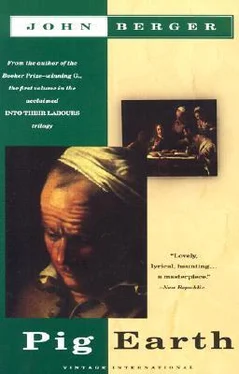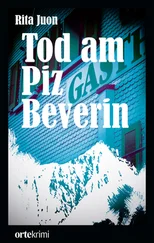The peasant has survived far longer than was predicted. But within the last forty years monopoly capital, through its multinational corporations, has created the new highly profitable structure of agribusiness whereby it controls, not necessarily the production, but the market for agricultural inputs and outputs and the processing, packaging and selling of every kind of foodstuff. The penetration of this market into all corners of the globe is eliminating the peasant. In the developed countries by more or less planned conversion; in the underdeveloped countries catastrophically. Previously cities were dependent on the countryside for their food, peasants being forced, in one way or another, to part with their so-called surplus. Soon the world countryside may be dependent on the cities even for the food its own rural population requires. When and if this happens, peasants will have ceased to exist.
During the same period of the last forty years, in other parts of the Third World — China, Cuba, Vietnam, Cambodia, Algeria — revolutions have been made by peasants, and in their name. It is too soon to know what kind of transformation of the peasant experience these revolutions will achieve, and how far their governments can or cannot maintain a different set of priorities to those imposed by the world market of capitalism.
It must follow from what I have already said that nobody can reasonably argue for the preservation and maintenance of the traditional peasant way of life. To do so is to argue that peasants should continue to be exploited, and that they should lead lives in which the burden of physical work is often devastating and always oppressive. As soon as one accepts that peasants are a class of survivors — in the sense in which I have defined the term — any idealisation of their way of life becomes impossible. In a just world such a class would no longer exist.
Yet to dismiss peasant experience as belonging only to the past, as having no relevance to modern life, to imagine that the thousands of years of peasant culture leave no heritage for the future — simply because it was seldom embodied in lasting objects — to continue to maintain, as has been maintained for centuries, that peasant experience is marginal to civilisation, is to deny the value of too much history and too many lives. No line of exclusion can be drawn across history in that manner, as if it were a line across a closed account.
The point can be made more precisely. The remarkable continuity of peasant experience and the peasant view of the world acquires, as it is threatened with extinction, an unprecedented and unexpected urgency. It is not only the future of peasants which is now involved in this continuity. The forces which in most parts of the world are today eliminating or destroying the peasantry represent the contradiction of most of the hopes once contained in the principle of historical progress. Productivity is not reducing scarcity. The dissemination of knowledge is not leading unequivocally to greater democracy. The advent of leisure — in the industrialised societies — has not brought personal fulfilment but greater mass manipulation. The economic and military unification of the world has not brought peace but genocide. The peasant suspicion of “progress,” as it has finally been imposed by the global history of corporate capitalism and by the power of this history even over those seeking an alternative to it, is not altogether misplaced or groundless.
If one looks at the likely future course of world history, envisaging either the further extension and consolidation of corporate capitalism in all its brutalism, or a prolonged, uneven struggle waged against it, a struggle whose victory is not certain, the peasant experience of survival may well be better adapted to this long and harsh perspective than the continually reformed, disappointed, impatient progressive hope of an ultimate victory.
Finally there is the historic role of capitalism itself, a role unforeseen by Adam Smith or Marx: its historic role is to destroy history, to sever every link with the past and to orientate all effort and imagination to that which is about to occur. Capital can only exist as such if it continually reproduces itself; its present reality is dependent upon its future fulfilment. This is the metaphysic of capital: the word credit , instead of referring to a past achievement, refers only to a future expectation. Such a metaphysic has come to inform a world system and has been translated into the practice of consumerism. The same metaphysic has lent its logic to the categorization of all those who are being impoverished by the system as backward (i.e., as bearing the stigma and shame of the past). This trilogy has been written in a spirit of solidarity with the so-called “backward,” whether they live in villages or have been forced to emigrate to a metropolis. Solidarity, because it is such women and men who have taught me the little I know.
OVER THE COW’S brow the son places a black leather mask and ties it to the horns. The leather has become black through usage. The cow can see nothing. For the first time a sudden night has been fitted to her eyes. It will be removed in less than a minute when the cow is dead. During one year the leather mask provides, for the walk of ten paces between fasting-stable and slaughter-house, twenty hours of night.
The slaughter-house is run by an old man, his wife, who is fifteen years younger, and their son, who is twenty-eight.
Seeing nothing, the cow is hesitant to move, but the son pulls the rope round her horns and the mother follows holding the cow’s tail.
“If I had kept her,” the peasant says to himself, “another two months until she calved. We could not have milked her any more. And after the birth she would have lost weight. Now is the best moment.”
At the door to the slaughter-house the cow hesitates again. Then allows herself to be pulled in.
Inside, high up near the roof, is a rail network. Wheels run on the rails and from each wheel a bar hangs down with a hook on the end of it. Attached to this hook a horse’s carcass of four hundred kilos can be pushed or pulled by a fourteen-year-old.
The son places the springed bolt against the cow’s head. A mask at an execution renders the victim more passive, and protects the executioner from the last look of the victim’s eyes. Here the mask ensures that the cow does not turn her head away from the bolt which stuns her.
Her legs fold and her body collapses instantaneously. When a viaduct breaks, its masonry — seen from a distance — appears to fall slowly into the valley below. The same with the wall of a building, following an explosion. But the cow came down as fast as lightning. It was not cement which held her body together, but energy.
“Why didn’t they slaughter her yesterday?” says the peasant to himself.
The son pushes a spring through the hole in the skull into the cow’s brain. It goes in nearly twenty centimetres. He agitates it to be sure that all the animal’s muscles will relax, and pulls it out. The mother holds the uppermost foreleg by the fetlock in her two hands. The son cuts by the throat and the blood floods out on to the floor. For a moment it takes the form of an enormous velvet skirt, whose tiny waist band is the lip of the wound. Then it flows on and resembles nothing.
Life is liquid. The Chinese were wrong to believe that the essential was breath. Perhaps the soul is breath. The cow’s pink nostrils are still quivering. Her eye is staring unseeing, and her tongue is falling out of the side of her mouth.
When the tongue is cut out, it will be hung beside the head and the liver. All the heads, tongues and livers are hanging in a row together. The jaws gape open, tongueless, and each circular set of teeth is smeared with a little blood, as though the drama had begun with an animal, which was not carnivorous, eating flesh. Underneath the livers on the concrete floor are spots of bright vermilion blood, the colour of poppies when they first blossom, before they deepen and become crimson.
Читать дальше












